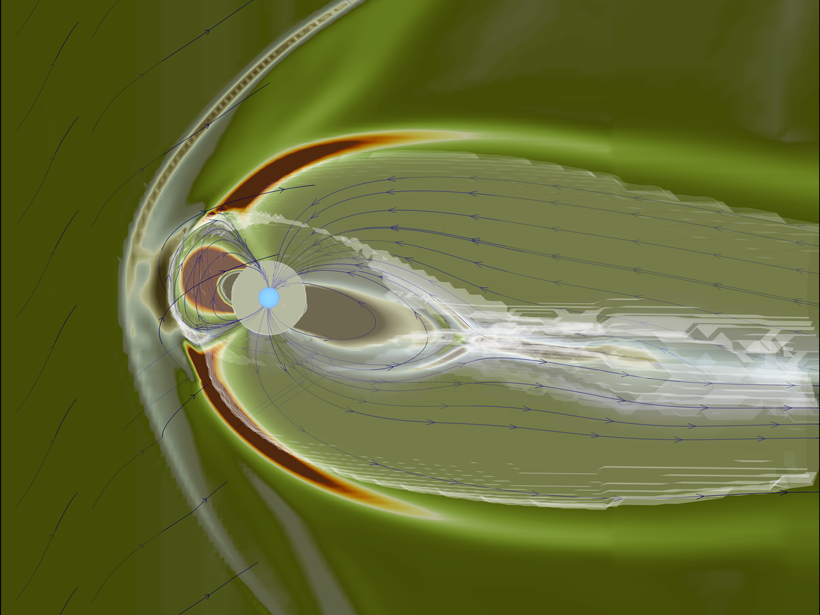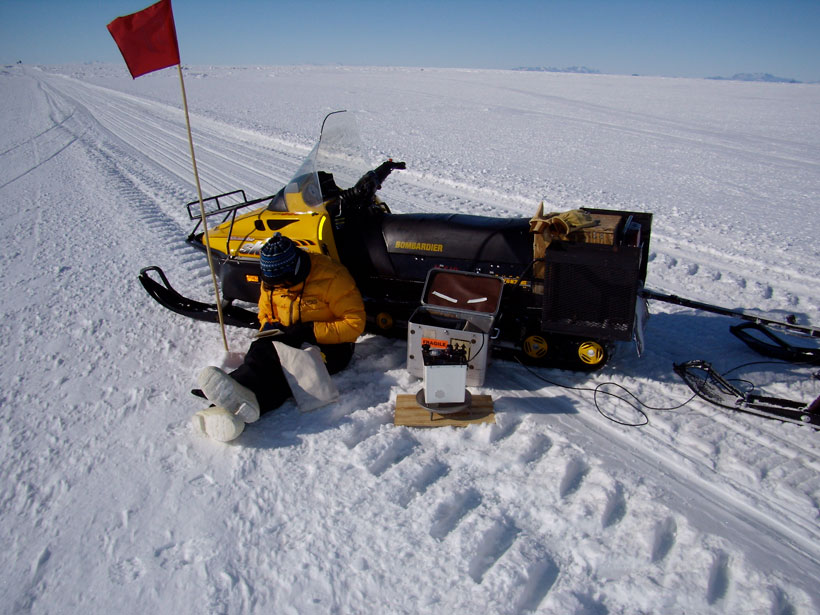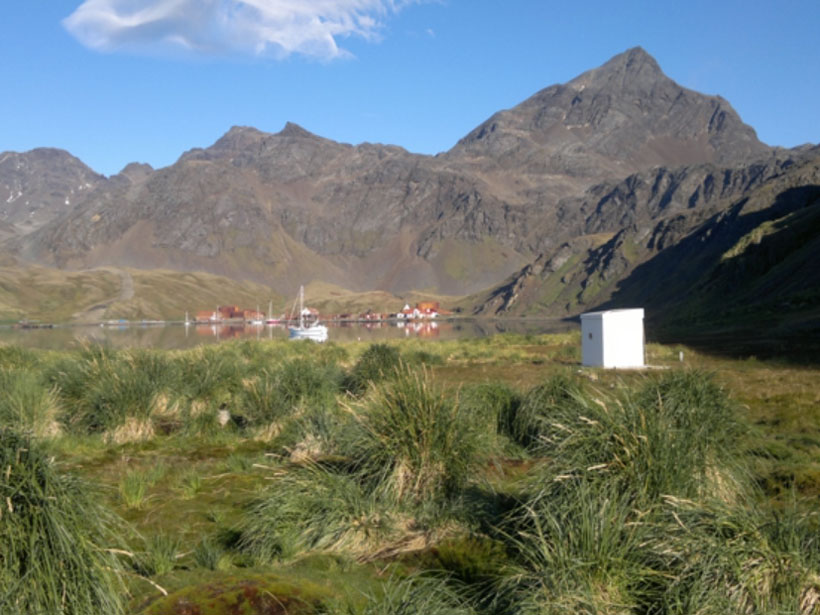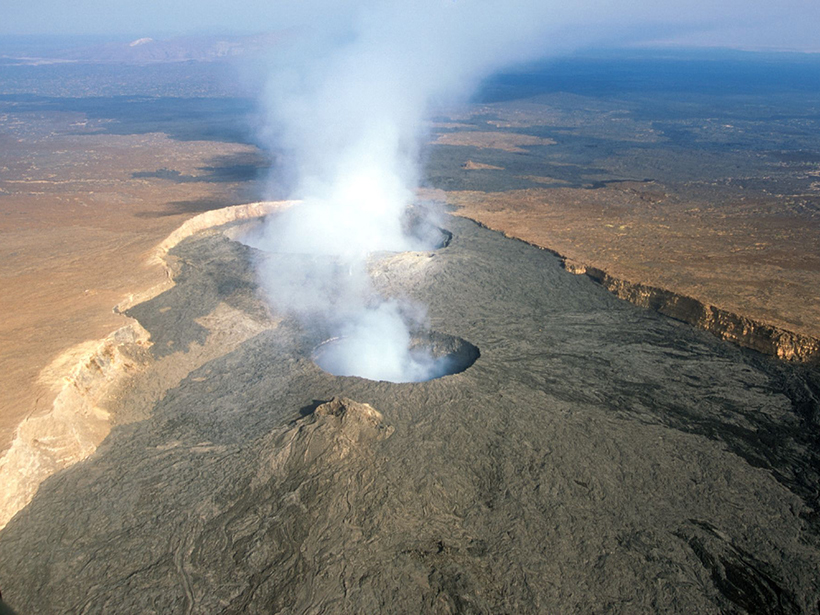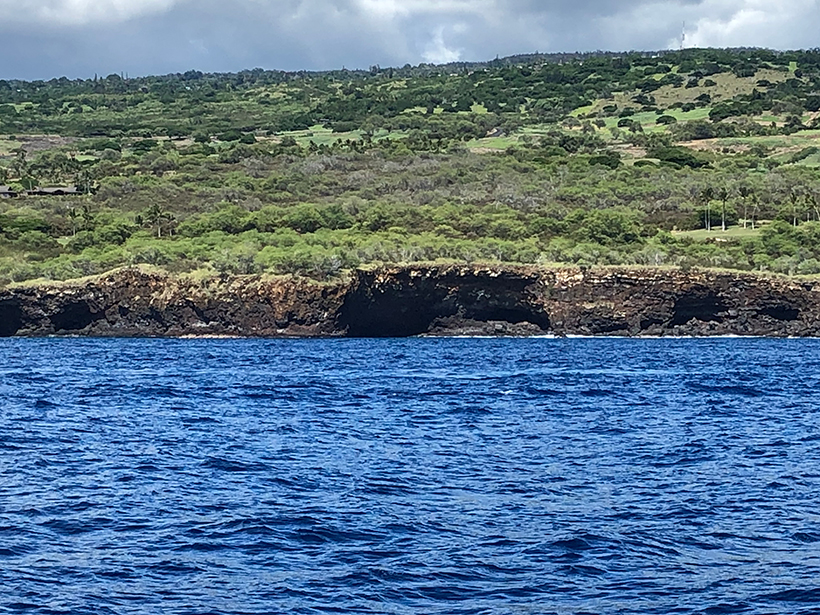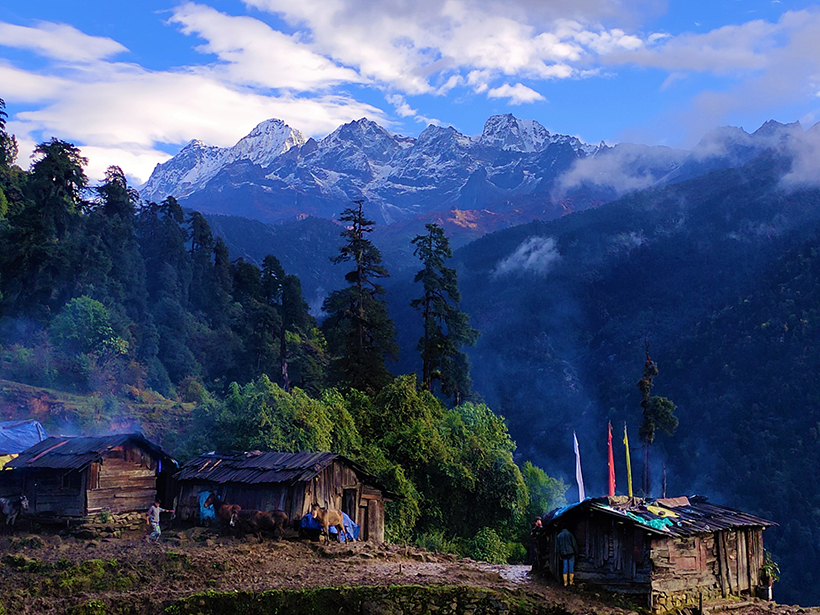A versatile suite of computational models, already used to forecast magnetic storms and potential power grid and telecommunications disruptions, is preparing to welcome a larger group of users.
Science Updates
Rethinking Oceanic Overturning in the Nordic Seas
Recent research offers new insights into exchanges of water between the North Atlantic and the Nordic Seas, which play critical roles in the climate-regulating Atlantic overturning circulation.
A Vital Resource Supporting Antarctic Research
The U.S. Antarctic Program Data Center is providing new services to help scientists document, preserve, and disseminate their research and to facilitate reusability of a wide range of valuable data.
Modernizing a Global Magnetic Partnership
For 30 years, INTERMAGNET, a worldwide network of ground-based observatories, has aided advances in navigation, precision drilling for oil and gas, and mitigating space weather impact on technology.
Earth’s Volatile Balancing Act
How do greenhouse gases and water circulate from minerals deep below Earth’s surface into the atmosphere and oceans—and then back again? Our understanding continues to evolve.
Breaking Up Is Hard to Do, Especially for Continents
A decade-long research collaboration has revealed that the split between Africa and North America roughly 200 million years ago was more drawn out than previously thought.
Slipping and Locking in Earth’s Earthquake Factories
Geodetic observations collected during back-to-back decadal research campaigns have revealed crucial new insights into the start–stop and slow-motion behavior of subduction zones.
Deep Submarine Fresh Water: A New Resource for Volcanic Islands?
The discovery of large freshwater reservoirs off Hawaii suggests that other volcanic islands may have similar resources, which could help meet water demands amid population growth and climate change.
Improving Models for Solar Climate Intervention Research
Modern climate models were designed to simulate natural systems and changes mainly due to atmospheric carbon dioxide, rather than to predict effects of deliberate climate interventions.
Discerning Structure and Seismic Hazards in the Sikkim Himalayas
A dense seismic network in operation since 2019 will provide new insights into the tectonics of seismically active Himalayan regions.

